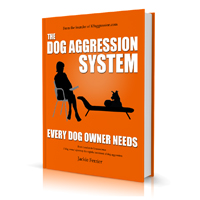Barking can be a big problem for people because it annoys the heck out of other people. This causes social conflict. There are different ways to tackle the problem of barking – and this does not even include punishment. But have you thought about why your dog is barking?
This article on dog barking on the Paws Ability website written by guest writer and trainer, Katie Kelly talks about how she creatively tackled the problem of barking for her dog. She needed to start with the why, but she also needed to take into account what was happening when she wasn’t there to deal with her dog. I am sure you’ll agree, she came up with a very creative solution. But not only did she come up with a really creative solution, part of the solution involved talking to a very knowledgable person for their ideas.
We are not all good creative problem solvers when it comes to our dogs, but that is what a good dog trainer can bring to your situation. In addition, if they can’t quite figure out the answer, they may have a good colleague who can.

Desensitizing to help dog barking
The key to improving dog barking is not to tackle the barking behavior itself by punishing it. But by trying to figure out what the trigger is. Once you do that, you can often desensitize a dog to it. Desensitizing is pretty much what it sounds like: you make your dog less sensitive to something.
First, you create an positive association with the trigger. But the trigger can’t be intense for this to happen. If your dog is barking at the door for example, you might want to try using a recording of your doorbell first and play that recording back low enough that your dog can hear it but doesn’t get worked up.
Then, you give your dog a treat every time he hears the door bell, regardless of whether he or she is barking. Lucky dog! But it is key to give the treat regardless of the barking because at this stage you are not concentrating on the barking. We are creating a situation that allows your dog to realize that every time he or she hears the doorbell, a treat follows it.
Guess what this does? It starts your dog looking forward to hearing the doorbell! Then you can raise the volume a little. Bit by bit you can increase the sound. Then you can try your real door bell. Remember, the dog gets a treat after the door bell (or trigger) no matter what.
The result is the dog eventually stops becoming alarmed about what the door bell means. Yes, this will need several repetitions to accomplish. Oh no. Ring door bells and give treats your dog. So hard! Cheer up – this is super easy.
Here is a great video showing this process in action.


